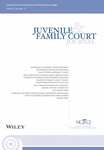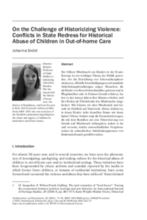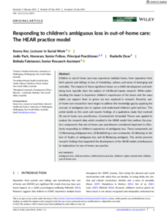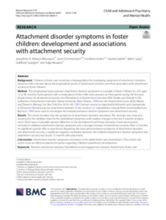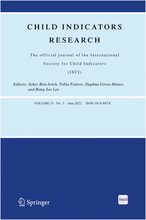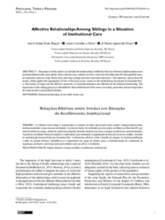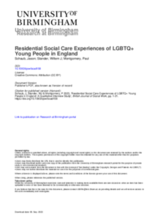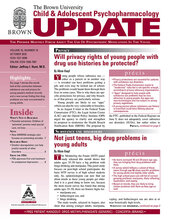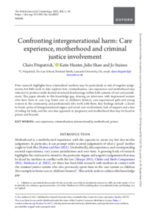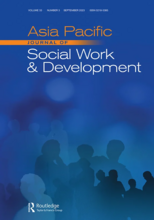Displaying 21 - 30 of 713
The purpose of this nonexperimental quantitative study was to examine the responses of 18- to 24-year-olds (n = 83) who had been in out-of-home care, comparing early adolescent versus non-early adolescent placement, placement setting, and sibling accessibility on attachment.
This essay examines how child abuse and violence that occurred in the past have been conceptualised in one current redress process in an established democracy – the Swedish redress initiatives for historical abuse of children in out-of-home care.
Drawing on the findings of a qualitative study undertaken in the state of New South Wales (NSW), Australia, this article applies the concept of ambiguous loss to outline the ways in which Out of Home Care practitioners can more adequately respond to children's experience of grief and loss.
This longitudinal study aims at investigating the attachment disorder symptoms during the first year of placement in foster care. The participants
were recruited through German social services departments around Dortmund, the Ruhr valley, and the Metropolitan region of Nuremberg.
This global study investigates how adolescents between 12 and 18 years old in residential and non-residential youth care services perceive their quality of life on the basis of a new specific measure: the Quality of Life in Youth Services Scale (QOLYSS).
The purpose of this article is to identify the relationships of affection that exist between children/adolescents institutionalized in the same shelter. Data collection was carried out with two sisters hosted in Brasília-Distrito Federal.
This study produced a nuanced understanding of the residential care experiences of LGBTQ+ young people in England.
This paper explores how criminalisation, care experience and motherhood may intersect to produce multi-faceted structural disadvantage within both systems of care and punishment in England.
This study aimed to examine the sense of family belonging of individuals with childhood institutional care experience through personal details, institutional care, and post-institutional-care variables. This study was conducted with 313 adults with institutional care experience during childhood in Western Asia.

